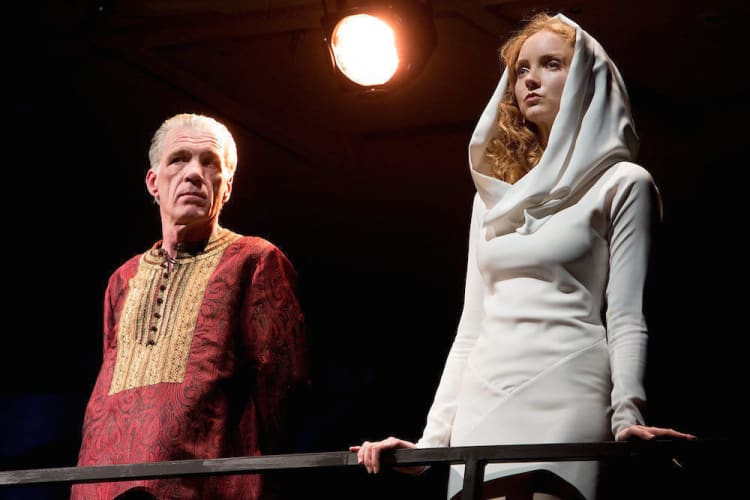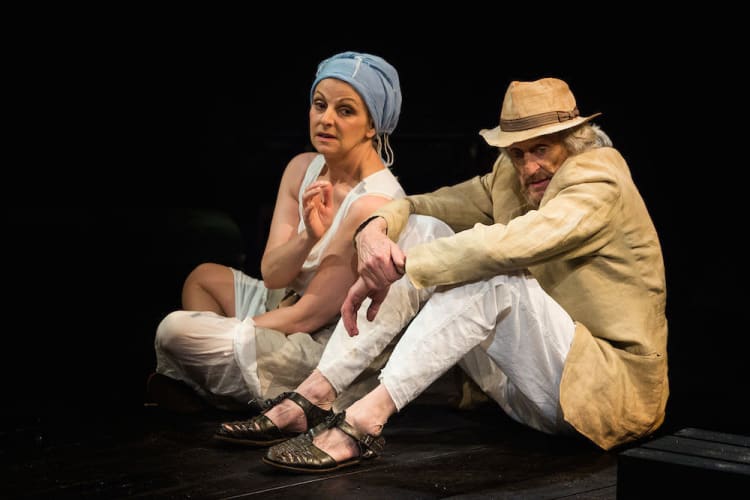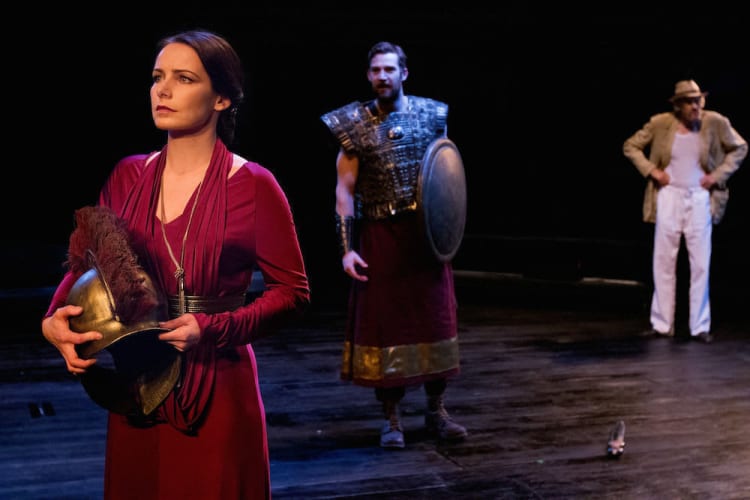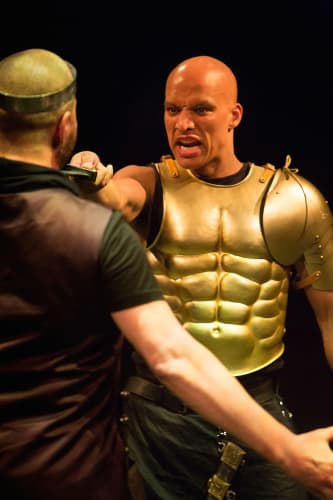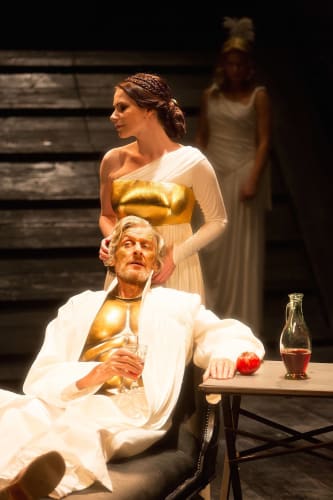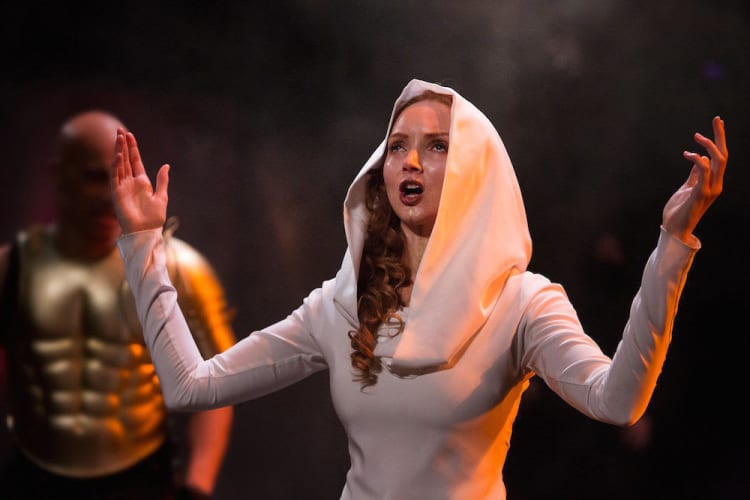For his take on the Trojan Wars, poet Simon Armitage has focused on the end of the siege of Troy, most famous for the wooden horse, utilising Homer's The Iliad and Virgil's Aenid as his main sources.
The Trojan Wars were ancient history even to the Ancient Greeks, but their stories filled their literature, theatre and mythology. In this episode, the wife of Greek warrior Menelaus, Helen, famed for her beauty, was taken by Paris and has been living as his wife in Troy. The Greek army, led by Agamemnon, lays siege to Troy until she is returned, and the two sides sit in stalemate for nearly a decade.
This background is related to us by Zeus in a framing device that sees him and his wife Hera as an old couple in the modern world, reduced to selling figurines of the gods as no one believes in them any more so they have nothing to do. This is, apparently, to draw parallels with modern conflicts, but this layer of meaning isn't clear.
Due to the nature of a siege, the story involves a lot of waiting around and talking. Helen is a symbol and catalyst for the conflict in the original story; here she weaves a tapestry depicting the story of the siege and expresses some strong opinions about both sides.
Meanwhile in the Greek camp, Agamemnon insults legendary warrior Achilles and loses him from the battle, resorting to bribery to get him back through his general Odysseus when the battle gets going and Greek losses are heavy. However, it takes the death of Achilles' beloved friend Patroclus to draw Achilles into the battle.
Armitage's sources have a huge variety of plots and characters, which he has pared down for this production, but it seems his work is still ongoing. The running time was advertised during previews at 3¼ hours (with rumours that it had recently been far longer) but it had lost 20 minutes on the day of the press night and another 5 by I collected my tickets.
Such extensive last-minute cutting is a sign of problems and puts great pressure on the writer and director to maintain a story that makes sense and on the actors to remember all of the changes. The result is a chain of episodes—some of which are powerful, affecting or even very funny but some are quite dull—that don't draw the audience along with any coherent narrative. There is a nod to Greek drama with the messengers bringing us news of action that happens offstage, but some of the battle scenes are brought onstage as well.
There are some beautifully drawn characters well played by a committed cast, such as Tom Stuart as the foppish Paris, Colin Tierney as an intense Odysseus, a great pairing of Richard Bremmer and Gillian Bevan as Zeus and Hera that can go from funny domestic scenes to something more sinister, Garry Cooper as a dryly witty Priam, leader of the Trojans, Clare Calbraith as a bitter Andromache and David Birrell as an unpredictable and dangerous Agamemnon.
There is also, of course, the face that launched a thousand banners throughout the city centre, model and film star Lily Cole, who doesn't have a great deal to do as Helen of Troy but pulls it off effectively. Jake Fairbrother's Achilles has exactly the right look as well, muscular and volatile, but his dialogue is delivered in a peculiar sing-song voice, rather like a performance poet who values the sound of the words more than their meaning.
Director Nick Bagnall creates some intense scenes, well-timed comedy and striking images—the emergence of the soldiers backlit (lighting designer Chris Davey) through designer Ashley Martin-Davis's angled shutter door is impressive. However intensity is often signified by dialogue delivered in a quiet monotone, which doesn't work. The horse is represented by some odd combination of set and action that doesn't make much sense—you really need to know about the wooden horse beforehand to have any hope of understanding what is going on here.
As a whole, it is a piece that has some great moments and some very impressive writing in parts but it still needs a lot of work to bring it all together into a satisfying and coherent whole. And it's still much too long.
